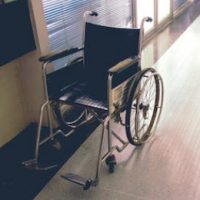What Happens When You Leave a Hospital Sicker Than When You Went Into It?

It is certainly expected that you will be sick to some extent when you go into a hospital. What you don’t expect is to be even sicker when you get out of it—especially if what is making you sicker is actually caused by the hospital itself, and your stay in the hospital.
A Dangerous Combination
Hospitals are filled with two factors that combine to make a volatile combination.
On the one hand hospitals have sick, ill people, many of whom have diseases that can be contagious. Even if they aren’t sick with a contagious disease, the treatment of many sick patients creates an environment that breeds sickness and illness—gauze, bodily waste, blood, saliva, or other contaminants that carry illness often are routine when a patient is in the hospital.
On the other hand, you have a population in the hospital that is particularly vulnerable to that illness that is being spread everywhere.
Patients may be older, ill, or because of injury, be especially vulnerable to infection. They may even have open wounds that make the introduction of illness much more likely than it would be in the outside world.
Contracting a Hospital Acquired Infection
That’s why many patients get sick because of exposure to disease, in a hospital. When they get sick, they have what is known as a hospital acquired infection or HAI.
In many cases, an HAI can be difficult to detect—it may seem like the patient is just sick from his or her underlying illness or injury, or else, it may not even manifest until the patient has been discharged and gets home.
How Disease Spreads
The diseases that victims contract in the hospital are often common diseases that they could contract outside of the hospital. For example, staph infections, MERS infections, respiratory infections, digestive problems, or infection of wounds or surgical areas, are common HAIs.
The infections in hospitals normally spread because of cleanliness problems in the hospital, and usually, cleanliness in the common shared areas of the hospital, like hallways, recreation areas, meeting rooms, or waiting rooms. In some cases, surfaces of hospital equipment like diagnostic machines, aren’t properly cleaned up after patient usage.
Linens and bed sheets that aren’t properly and diligently cleaned or disinfected, can also spread disease, as can poor hygiene by staff (such as a failure to wash hands when nurses or others go from patient room to patient room) and even poor ventilation in the hospital can be a contributing factor to the spread of disease and infection.
Suing for Illness
A victim who acquires an HAI, does have a right to sue and receive compensation from the hospital. The case is normally one for ordinary negligence, not medical malpractice, but it’s best to check with your attorney immediately, as both kinds of cases may have different requirements—and different time limits to bring a lawsuit.
Did you get sick or injured in a hospital? Call the Knoxville personal injury attorneys at Fox Farley Willis & Burnette, PLLC, for help and a free consultation today.
Sources:
alllaw.com/articles/nolo/medical-malpractice/liability-infection-acquired-hospital.html
cdc.gov/hai/data/index.html
